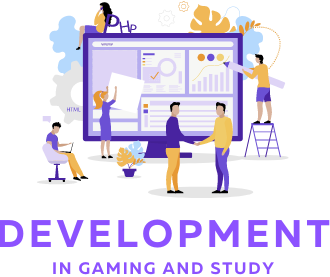Quantum Computing: Unleashing Unprecedented Processing Power
The future of online gaming is intertwined with the potential of quantum computing. With the ability to process vast amounts of data at speeds unattainable by classical computers, quantum computing holds the promise of revolutionizing in-game simulations, AI algorithms, and overall gaming slot joker123 performance. The path ahead involves exploring how this cutting-edge technology can elevate the online gaming experience to new heights of realism and complexity.
Quantum Gaming Simulations: Redefining Realism
Quantum computing’s computational prowess can significantly enhance gaming simulations. From physics-based rendering to dynamic environmental interactions, quantum computing can simulate complex scenarios with unparalleled accuracy. This evolution promises a leap forward in realism, creating gaming environments that mirror the intricacies of the physical world in ways previously thought impossible.
Quantum AI in Gaming: Elevating Virtual Opponents
The integration of quantum AI algorithms introduces a new era in creating virtual opponents that adapt and learn in real-time. Quantum computing’s parallel processing capabilities enable more sophisticated and responsive non-player characters (NPCs), challenging players with unpredictable and dynamic scenarios. This evolution in AI-driven gaming promises a level of challenge and engagement that goes beyond traditional gaming experiences.
Edge Computing: Reducing Latency for Seamless Gameplay
Edge computing is emerging as a game-changer for online gaming, particularly in reducing latency. By processing data closer to the source, edge computing minimizes delays in communication between players and servers. This technology ensures smoother gameplay, lower latency in multiplayer interactions, and an overall enhanced gaming experience. The path ahead involves further optimizing edge computing to create seamless and responsive online gaming environments.
Decentralized Gaming Networks: Empowering Players
The integration of edge computing contributes to the development of decentralized gaming networks. These networks distribute computational tasks across multiple edge nodes, reducing the reliance on centralized servers. This not only enhances the security and stability of online gaming but also empowers players by providing a more resilient and distributed infrastructure.
Brain-Computer Interfaces (BCIs): Gaming Through Thought
The convergence of gaming and neuroscience is on the horizon with the development of Brain-Computer Interfaces (BCIs). BCIs enable direct communication between the brain and the gaming system, allowing players to control in-game actions through their thoughts. The potential applications include immersive virtual reality experiences and a new level of player agency. The path ahead involves refining and mainstreaming BCIs to offer a groundbreaking and personalized gaming interface.
Mind-Controlled Gameplay: A New Frontier
BCIs pave the way for mind-controlled gameplay, where players can navigate virtual worlds, interact with characters, and execute in-game actions solely through their thoughts. This innovation not only transforms the gaming experience but also holds potential therapeutic applications, contributing to the development of neurotechnology for entertainment and well-being.
Conclusion: Paving the Way for a Sci-Fi Gaming Future
In conclusion, emerging technologies like quantum computing, edge computing, and Brain-Computer Interfaces are poised to reshape the landscape of online gaming. The path ahead involves pushing the boundaries of what is possible, unlocking new dimensions of realism, interactivity, and personalization. As we venture into this sci-fi gaming future, players can anticipate a dynamic and unprecedented era where technology and imagination converge to create gaming experiences beyond our current comprehension. So, buckle up for a thrilling ride into the uncharted territories of online gaming’s evolution!
